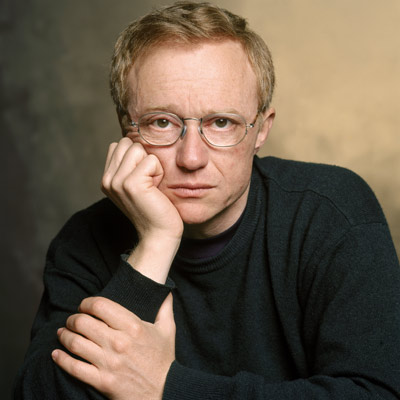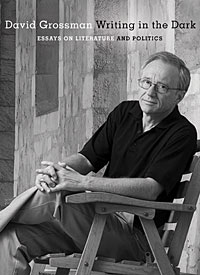David Grossman to Speak in Santa Barbara
Esteemed Israeli Author Shares New Collection of Essays

Roughly the size of New Jersey-the fifth smallest state in the U.S.-the modern state of Israel garners a prodigious amount of attention as a focal point in one of the world’s most volatile regions. The current U.S. presidential candidates’ outlook on Israel has been one of the more significant issues in the election, amid mounting concerns over rogue states and Islamist terror organizations. However, beneath all of this geopolitical turmoil, a very human story exists. At the root of Israel’s struggle for national survival are families and individuals moiling for their own survival. This is a struggle faced by Israelis and Palestinians alike, and is not only physical, but emotional.
David Grossman, an Israeli writer known around the world as a vocal proponent of peace, is no stranger to this struggle. Grossman has witnessed many conflicts, first from the perspective of a youth growing up in a Jerusalem suburb during the 1960s, and later from that of an adult attempting to comprehend the full meaning of the intifadas and wars with Egypt and Lebanon. During his childhood-a time he said was marked by an atmosphere of collective cooperation, deemed necessary for the survival of the fledgling nation-Grossman found his literary voice as someone who needed to withdraw from the collective to describe things in his own way.

Grossman’s novel The Book of Intimate Grammar follows the life of Aron Kleinfeld, a young boy who, disgusted with the conventions and cliched language used by mainstream society in 1960s Jerusalem, creates his own internal world, filled with a language that frees him from what he sees as the stifling inevitability of an “invisible order.” “It echoes quite a lot of my childhood, but it echoes a lot of childhoods from this generation,” said Grossman in a recent telephone interview. “[There was] this atmosphere of the collective that was not very accepting of exceptional individuals.” In a recent essay, “Books That Have Read Me,” Grossman describes the story as the emergence of a creative spirit “from within ‘those fortressed walls of tedium.’ : Aron must say I and not we,” he said.
The theme of language and its use to free both himself and his readers from the confines of typical rhetoric and perception has been pervasive in Grossman’s work. After losing his 20-year-old son, Uri-a staff sergeant in an armored division of the Israeli Defense Forces who was killed by an anti-tank missile during the 2006 Israel-Lebanon War-he wrote that the liberty provided by writing caused an expansion of consciousness, even though the vehicle for that exploration was the death of his son. “I feel that there is a fear-even in literature-of describing realities. When I describe reality, it’s not only the harshness that is revealed, but we are able to gain things we were not able to capture earlier.”
One of the writer’s greatest contributions has been to alter the way people think about Israeli-Palestinian reconciliation. “There are other ways to describe your enemy,” he said. “Maybe the enemy is not only the enemy. Maybe there is some way we can find common denominators and make the enemy a partner, which is the ultimate goal.” Grossman wrote the well-known 1987 article The Yellow Wind after traveling in the West Bank for several weeks, interviewing Israelis and Palestinians who lived there. “I do not regard Palestinians as the enemy, because so many of them want to become partners,” he said, adding, “but I do not want to deny that the fundamentalists who declare themselves as the enemy are the enemy.”
Grossman has been an ardent supporter of peace talks, pointing to dialogue as the best means to reconciliation both at the national level and between the people whose lives are affected by the course of action chosen by political leadership. “I think both sides became addicted to the conditions and the usage of power that has been accepted over the use of dialogue,” he said. At the time of the Oslo Accords in 1993, Grossman marveled at the poignancy of seeing two living symbols of such firm opposition-then-Israeli prime minister Yitzhak Rabin and the now deceased head of the Palestinian Liberation Organization, Yassir Arafat-meeting for the first time. Years later, he commended a group of Palestinian intellectuals for their publication of an open letter to the Israeli public in major Israeli newspapers.
In his quest for a greater understanding of the events unfolding in the world around him, Grossman again highlighted the importance of an expanded form of free expression for exploring ideas and conflicts. “One can understand so much more about [the Israeli-Palestinian] conflict by reading literature than by reading what the media writes,” he said. “We all understand that reality is much more rich than what we are fed by the media and the government.”
4•1•1
David Grossman will appear at UCSB’s Campbell Hall at 7:30 p.m. on Wednesday, November 5, to read passages from his new collection of essays, Writing in the Dark. The event is free. For more information, call 893-3535 or visit artsandlectures.ucsb.edu.



